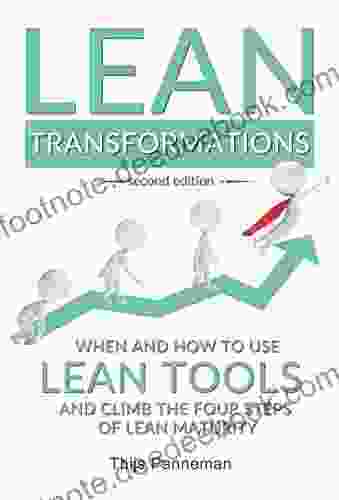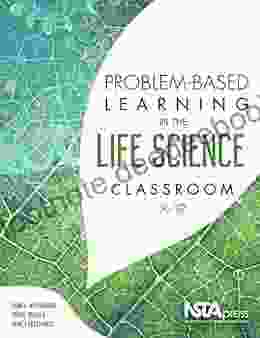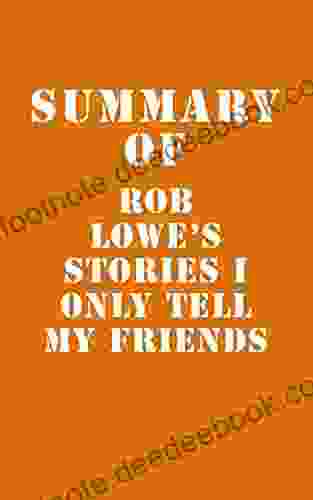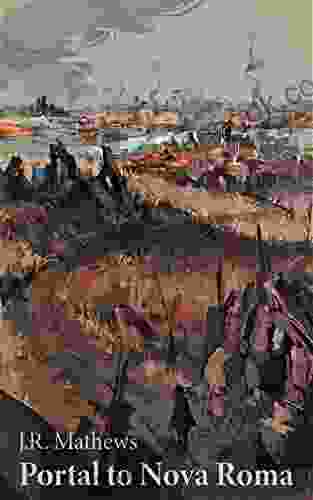Problem-Based Learning in the Life Science Classroom: A Deep Dive into Engaging Students in Real-World Science

Problem-based learning (PBL) is a student-centered learning method that challenges students to solve real-world problems through hands-on experiences. This approach is rooted in the belief that students learn best when they are actively engaged in the learning process and when they can connect their learning to the real world.
4 out of 5
| Language | : | English |
| File size | : | 36432 KB |
| Screen Reader | : | Supported |
| Print length | : | 585 pages |
| Lending | : | Enabled |
PBL is particularly well-suited to life science classrooms, where students can explore complex biological systems and investigate real-world problems related to health, the environment, and biotechnology.
Benefits of Problem-Based Learning
PBL offers numerous benefits for students in the life science classroom, including:
* Increased motivation and engagement: PBL challenges students to solve problems that are relevant to their lives and interests, which can increase their motivation and engagement in learning. * Development of critical thinking skills: PBL requires students to think critically about problems and develop creative solutions, which can help them develop their critical thinking skills. * Enhancement of problem-solving skills: PBL provides students with opportunities to practice problem-solving skills in a real-world context, which can help them develop their problem-solving abilities. * Increased understanding of content: PBL helps students to make connections between different concepts and to develop a deep understanding of content. * Improved collaboration skills: PBL requires students to work together in teams to solve problems, which can help them to develop their collaboration skills.
Challenges of Problem-Based Learning
While PBL offers many benefits for students, it also comes with some challenges, including:
* Increased time commitment: PBL can be time-consuming, as it requires students to research, investigate, and solve problems. * Need for a supportive learning environment: PBL requires a supportive learning environment where students feel comfortable taking risks and asking questions. * Difficulty finding appropriate problems: Finding appropriate problems that are challenging yet achievable can be a challenge for teachers.
Best Practices for Problem-Based Learning
To successfully implement PBL in the life science classroom, teachers should consider the following best practices:
* Start with a well-defined problem: The problem should be clear, concise, and relevant to the students' lives and interests. * Provide students with adequate resources: Students need access to a variety of resources, such as books, articles, websites, and experts, to help them solve problems. * Facilitate student discussion and collaboration: Students should be encouraged to work together in teams to solve problems and share their ideas. * Provide timely feedback: Feedback should be provided throughout the problem-solving process to help students stay on track and improve their work. * Assess student learning: Students should be assessed on their ability to solve problems, as well as on their critical thinking and collaboration skills.
Problem-based learning is a powerful teaching method that can help students to develop critical thinking, problem-solving, and collaboration skills. By fostering student engagement and providing opportunities for real-world learning, PBL can help students to develop a deep understanding of life science and its relevance to their lives.
4 out of 5
| Language | : | English |
| File size | : | 36432 KB |
| Screen Reader | : | Supported |
| Print length | : | 585 pages |
| Lending | : | Enabled |
Do you want to contribute by writing guest posts on this blog?
Please contact us and send us a resume of previous articles that you have written.
 Book
Book Novel
Novel Page
Page Chapter
Chapter Story
Story Reader
Reader Library
Library Magazine
Magazine Bookmark
Bookmark Shelf
Shelf Foreword
Foreword Scroll
Scroll Codex
Codex Tome
Tome Bestseller
Bestseller Classics
Classics Library card
Library card Memoir
Memoir Dictionary
Dictionary Thesaurus
Thesaurus Resolution
Resolution Catalog
Catalog Card Catalog
Card Catalog Stacks
Stacks Archives
Archives Periodicals
Periodicals Study
Study Scholarly
Scholarly Reserve
Reserve Academic
Academic Journals
Journals Reading Room
Reading Room Rare Books
Rare Books Special Collections
Special Collections Interlibrary
Interlibrary Study Group
Study Group Thesis
Thesis Dissertation
Dissertation Reading List
Reading List Book Club
Book Club Tom Lutz
Tom Lutz Peter Lance
Peter Lance Tanfer Emin Tunc
Tanfer Emin Tunc Marc Zimmerman
Marc Zimmerman Jean Philippe Marre
Jean Philippe Marre Craig Shirley
Craig Shirley Chase Orton
Chase Orton Jason Kander
Jason Kander Rana Foroohar
Rana Foroohar Dominique Auzias
Dominique Auzias Anna Nguyen
Anna Nguyen Irina Nevzlin
Irina Nevzlin Peter Brennan
Peter Brennan Thomas W Savage
Thomas W Savage Philip Carlson
Philip Carlson J Andrew Ross
J Andrew Ross Jaime Suchlicki
Jaime Suchlicki Randy Judd
Randy Judd Jean Plaidy
Jean Plaidy Jeffrey D Simon
Jeffrey D Simon
Light bulbAdvertise smarter! Our strategic ad space ensures maximum exposure. Reserve your spot today!
 William FaulknerFollow ·2.4k
William FaulknerFollow ·2.4k Boris PasternakFollow ·16.7k
Boris PasternakFollow ·16.7k Kazuo IshiguroFollow ·10.7k
Kazuo IshiguroFollow ·10.7k Rodney ParkerFollow ·6.2k
Rodney ParkerFollow ·6.2k Edmund HayesFollow ·11.3k
Edmund HayesFollow ·11.3k Albert ReedFollow ·9.6k
Albert ReedFollow ·9.6k Deacon BellFollow ·17.8k
Deacon BellFollow ·17.8k Oscar BellFollow ·5.3k
Oscar BellFollow ·5.3k

 Allen Ginsberg
Allen GinsbergUnveiling the True Meaning of Enough: A Comprehensive...
: In the relentless pursuit of progress and...

 Clay Powell
Clay PowellHawker Hunter: The Jet Fighter that Shaped British...
Nestled in the halls of aviation...

 Alec Hayes
Alec HayesWhen and How to Use Lean Tools and Climb the Four Steps...
Lean is a management...

 Trevor Bell
Trevor BellVolume of Charlotte Mason Original Homeschooling: A...
Charlotte Mason's original...

 John Parker
John ParkerAscending Tristan da Cunha: A Comprehensive Guide to...
Prepare yourself for an extraordinary journey...
4 out of 5
| Language | : | English |
| File size | : | 36432 KB |
| Screen Reader | : | Supported |
| Print length | : | 585 pages |
| Lending | : | Enabled |














